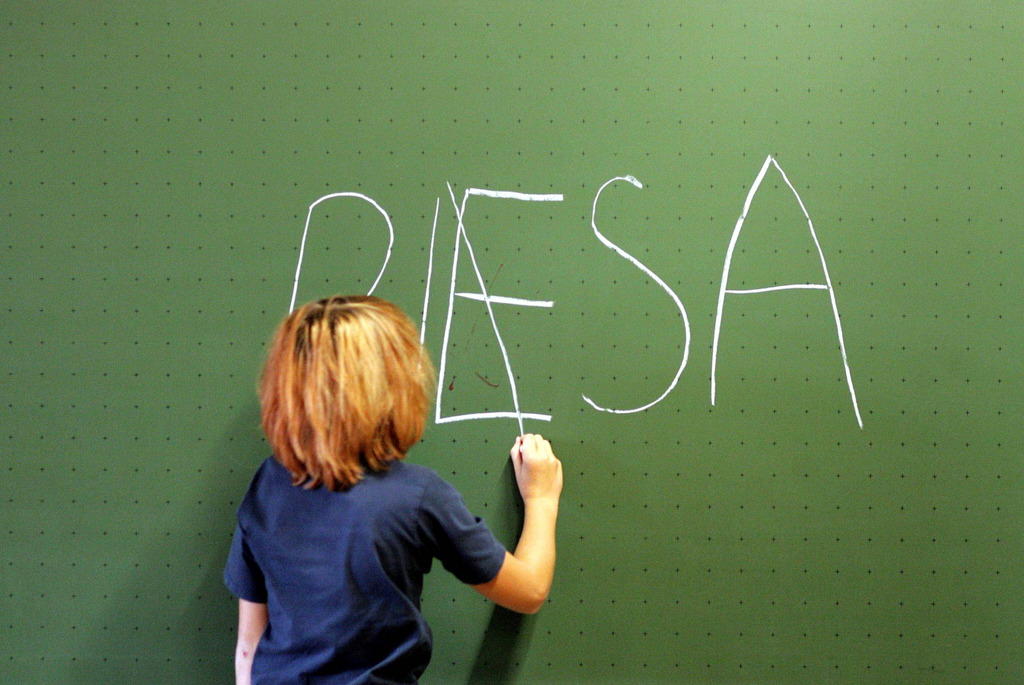Foreigners suffer disadvantage in school career

Children from migrant backgrounds are more likely to fall behind with their education after compulsory school than those with Swiss parentage, a study has found.
Fewer foreign children than Swiss children are progressing through upper secondary level – an apprenticeship, senior high school (gymnasium) or vocational school – which comes after children have finished their obligatory schooling at around age 16, according to a report in the SonntagsZeitungExternal link.
+ Find out more about Swiss education here
One year after leaving compulsory school, 46% of foreign children had either repeated a year, dropped out of their apprenticeship or gymnasium, or taken a year’s break. Among Swiss school leavers, it was 31%.
“This difference of 15% is massive,” said Stefan WolterExternal link, professor for the Economics of Education at the University of Bern, and co-author of the study, in the article. It translates to 3,000-4,000 more young foreigners than young Swiss falling behind at this stage of their education, he said.
The study looked at 13,000 school leavers, who took part in the 2012 PISA test.
Why?
The study’s authors say that “competence differences” are one reason. For example, the PISA test showed that 15-year-old pupils with a migration background on average lagged a year behind their Swiss counterparts, according to the newspaper.
Also, foreign parents are more likely to push their children into gymnasium or a demanding apprenticeship, “even when their children are not qualified enough for this,” Wolter added.
In addition, many foreigners did not fully understand the Swiss education system – or underestimated the value of apprenticeships – and chose the wrong path for their children, Wolter said. Raising awareness among foreign parents of how to make the right choices would help, he added.

In compliance with the JTI standards
More: SWI swissinfo.ch certified by the Journalism Trust Initiative












You can find an overview of ongoing debates with our journalists here . Please join us!
If you want to start a conversation about a topic raised in this article or want to report factual errors, email us at english@swissinfo.ch.